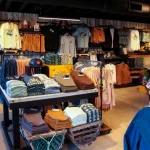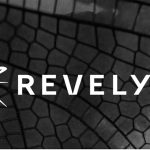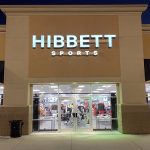The outdoor industry’s long quest to secure down that does not come from live-plucked or force-fed birds – and prove it to consumers – reached a milestone this month with announcements from three California companies.
Patagonia announced Nov. 6 that it will move to “100 percent Traceable Down” across its entire collection of down-insulated products starting next fall. Patagonia Traceable Down is sourced from birds that have been neither force-fed for foie gras production nor plucked during their lifetime. The company said it took six years to establish its supply chain.
The North Face (TNF) followed up November 14 by announcing on its blog that it was pilot testing a Responsible Down Standard developed in partnership with two leading NGOs and supplier Allied Feather & Down Corp. The B.O.S.S. Report confirmed Friday that Allied Feather, which supplies down to most of the world’s outdoor brands, plans to demonstrate its SourceTrack traceability system at Outdoor Retailer Winter Market in January.
“This system will allow consumers as well as our retail partners to trace the down fill in their outdoor recreation apparel and camping equipment by lot number all the way back to the part of the world where it was collected,” Allied Feather COO Daniel Uretsky wrote in an email to The B.O.S.S. Report.
The vast bulk of down used to make sleeping bags, parkas, boots, mittens and other outdoor gear comes from feathers that are a byproduct of the commercial foie gras industry concentrated in Eastern Europe. Foie gras growers have long been criticized by animal welfare groups for the practice of mechanically force feeding geese to enlarge their livers prior to harvest for and plucking them while they are still alive. Force feeding became illegal in California in 2012 and both practices have been banned for years by Turkey and several European jurisdictions.
Diverging strategies
While Patagonia has committed to shipping all its down products under its new standard starting next year, it has so far made no mention of third-party certification. TNF and Allied Feather, on the other hand, have said third-party certification is at the heart of their approach, and have not committed to any ships dates for traceable down products.
TNF began investing in a program in late 2012, when it started scouting partners that could provide third-party certification. It ended up partnering with Control Union Certifications (CUC) and Textile Exchange (TE) to evaluate animal welfare issues revolving around the global down supply chain. CUC is an accredited third-party certification body with expertise in auditing animal welfare and farming practices, while TE is a global nonprofit dedicated to sustainability with expertise in textile standard development and management. Allied Feathers, which declared its own commitment to developing a traceable supply chain in July 2012, came on board, said TNF Senior Manager of Sustainability Adam Mott.
“They allowed us into their supply chain,” Mott told The B.O.S.S. Report Friday. “We are helping them offer certified down to their other customers.”
In May, teams inspected hatcheries, farms, slaughterhouses, collectors, pre-processors, processing facilities and garment manufacturers in Eastern Europe to evaluate the feasibility of implementing an animal welfare and traceability standard. After a similar visit to Asia in September, TNF decided to commit publically to creating a standard.
TNF is now conducting pre-pilot, test audits with a subset of its supply chain to make sure the audit process for its Responsible Down Standard is functional from end to end. After this pre-pilot, the company will share its standard with others including animal welfare groups, industry organizations, suppliers, retailers, manufacturers and local market experts for further review and input. The company expects to publish a final standard in 2014 and work with Control Union to conduct a full-scale application of the standard across its global down supply chain. This will include onsite audits at every level of the supply chain from hatchery through to garment manufacturing and will result in down that is formally certified and traceable against the requirements of the Responsible Down Standard.
Mott said it’s too early to know when TNF will be able to offer products made from down certified under the standard.
“Getting to 100 percent certified down is our goal, but until we put it in practice we won't know,” Mott said. “I don't think anyone has as complicated a supply chain as we do. So it’s definitely a work in progress.”
Industry skepticism
Other manufacturers say it’s impossible to know with 100 percent certainty the provenance of down.
“I’ve been doing this for 43 years and I can tell you all this down comes from dozens of small farms here and there,” said the founder and owner of a small manufacturer of premium down clothing and sleeping bags. “Let's say you use 50,000 pounds of down a year. That's not going to come from just one or two of these family-owned farms. It may come from 100 and how are you are going to check all those farms?”
To keep down from live-plucked and force-fed birds out of its supply chain, the company strives to buy all of its down from a handful of European countries that prohibit those practices. The company even sent a buyer to visit farms in those countries this year.
“We try and do our best, but for someone to say they can check every farm is just pandering to those [animal welfare] organizations,” the executive said.
Difficult, but not impossible
Such skepticism explains why Allied and TNF decided to pursue third-party certification, said Uretsky.
“The only way any company can attempt to insure how the birds are treated and the how down is collected is by complete transparency in the system,” he said. “That is why we have been working very closely with our suppliers, many of whom have been with us for 25 years, and over the past few years conducting third-party audits. Allied only buys down from suppliers that we trust and that fully cooperate with our requirements. Third party audits help to strengthen the system.”
Ultimately, it’s likely traceable down will cost more as the brands and their suppliers try to recover the costs of implementing a traceability program. Those costs include not only third-party audit costs, but the costs of training suppliers how to document every transaction from the hatching of an egg in to the sewing room floor.
While the task presents challenges, it’s not impossible, Uretsky insisted.
“Allied has already been having our supply chain audited by a third party for a few years without finding any evidence whatsoever of any live plucking,” he said. “We have also stopped buying down which is the by-product of force-feeding. Our goal is to achieve 100 percent traceability and certification under this new more robust certification plan as soon as is feasible.”















